


The Poorest Will Foot the Bill Under the Mayor’s Plan.
It is often said that budgets are about priorities. Judging from Mayor Elorza’s proposed budget, it is clear where his priorities are. For weeks, the Providence City Council’s Committee on Finance has heard from department directors asking to fund new programs and initiatives in their FY2020 budget proposals on the backs of our city’s most vulnerable. We have heard it all, new jobs, salary increases for some of the City’s highest paid employees, a flashy tourism campaign and a 33% hike in funding for PVD Fest. The Mayor’s budget, representing a $15 million increase over last year’s, reads like a Christmas wish list to be funded by the expected windfall from our recent property revaluation process.
Speaking of the property revaluation, completed in March, homeowners in Providence’s most disadvantaged neighborhoods saw their property values increase 30, 40, even 50%. For many of our most vulnerable homeowners, the Mayor’s proposed tax plan will translate into property tax hikes of up to $1,000 or more. Meanwhile, owners of the city’s most expensive homes will get a tax cut under his plan; in some cases up to $10K or more.
Presented with a budget from a self-proclaimed “progressive” Mayor that raises taxes on the city’s poorest while giving the city’s wealthiest homeowners a tax break, the City Council felt obligated to find a way to help soften the blow to our working-class families.
The model we settled on is a progressive property tax model that gives all owner-occupied homes a 40% homestead exemption on the first $350 thousand of their property’s assessed value, and a 28% exemption on the amount that exceeds that. For example, a property valued at $400,000 would receive a 40% homestead exemption on the first $350 thousand and 28% exemption on the remaining $50 thousand (This $400,000 home would pay $98 less in taxes under the Council’s plan). Under this model, homeowners who would see their taxes go up under the Mayor’s plan, will still see an increase but it wouldn’t be as drastic. Meanwhile, homeowners who would see a savings will still see a savings, but it wouldn’t be as generous. Our proposal slightly redistributes the tax burden from the city’s working class, which makes up close to 99% of all city residents, to the city’s most affluent, or the top 1%.
Mayor Elorza claims that our plan unfairly targets one community and that it’s being forced through at the “eleventh hour.” This is simply not true. Perhaps, if the mayor introduced his budget in February, like Governor Raimondo, instead of in May the Council would be afforded more than just two months to vet, amend, and pass his budget.
Instead of pitting one community against another, perhaps the Mayor should explain to taxpayers why his proposed budget calls for a $15M increase to pay for festivals, salary raises, and other non-essential expenditures by raising taxes on the residents who can least afford it.
–Sabina Matos, City Council President





Council’s Committee on Finance to Look at Cutting the Mayor’s Proposed Budget
Councilman John J. Igliozzi, Chairman of the Council’s Committee on Finance, on Friday, June 14, invited his Council colleagues to attend budget hearings this week to discuss potential cuts to the budget to lower the tax burden on the city’s residents. The first meeting took place this evening.
“We have a moral and ethical obligation to help the most economically challenged neighborhoods,” stated Councilman John J. Igliozzi, Esq. and chairman of the Council’s Committee on Finance. “When we received the budget from the Mayor at the end of April it included an increase of $15M over last year and a tax plan that disproportionately raised the tax levy on the lowest valued houses; while the most valued homes would see a decrease in their taxes, which ironically is only 1% of the properties in our city. How is that fair? We hear the Mayor speak about ‘equity’ all the time, but his tax plan is nothing if not inequitable. It taxes the poorest while giving the most affluent the biggest breaks. The Council Leadership team proposed a plan that we believe to be equitable, but what we keep hearing from the community is that we must cut the budget to bring down the tax rate. That’s what we plan to do.”
The Committee on Finance has begun to go line by line through the budget to make the cuts needed to keep the city running, to keep city services level, and to lower the tax burden on all residents, not just the affluent. For every $1.2M in budget cuts, we can reduce the tax rate by $0.20. A deduction of $5M from the budget would be $1 off the tax rate.
Majority Leader and Vice-Chairwoman of the Councils’ Committee on Finance Jo-Ann Ryan stated, “We have worked very hard to bring to the table a plan that is not just equitable, but fair. We will continue to look at the budget to reduce inefficiencies and reduce spending so that we can lower the tax burden further. The Council was handed a budget that called for an increase in spending of $15M, and while many of those line items are worthy of support, we can’t take from the most vulnerable to pay for them. We are committed to thinking creatively and to working outside the box to make sure that everyone is starting at the same baseline.”
The Committee on Finance is planning on holding two other meetings this week on Wednesday, June 19, and Thursday, June 20, beginning at 5:00 PM. (Please note the Committee will adjourn at 6:45 on Thursday in preparation for the regularly scheduled City Council meeting and will reopen the meeting upon the meetings completion.) The Committee will gladly take public comment on the budget and tax plans at the end of each of these meetings.
Majority Leader Ryan continued, “It is paramount that citizens get a voice in decisions that affect them, and holding open meetings, and allowing for this discourse will ensure that residents will be heard. It’s not easy governing a city with massive obligations and liabilities, and for four years we have managed not to raise taxes, but with such a significant increase in spending in the Mayor’s budget we needed to create equity. I know the Committee looks forward to hearing from the community in the coming days.”
As the Council’s Committee on Finance moves through the process they plan to examine all plausible options to pass a budget that is fair and equitable for all of Providence.
You can view the proposed budget here: Budget Book.
The Council’s Committee on Finance meetings is listed on the City Council website, on the City’s Open Meeting’s Portal, and the State’s Open Meetings Portal.





Pro Tem Correia Unveils New Radar Guns and Speed Sleds
Council President Pro Tempore Michael Correia (Ward 6), Council President Sabina Matos (Ward 15), and members of the Providence Police Department unveiled the latest equipment to enhance public safety at a press conference yesterday. The department is now equipped with 12 new radar guns and 3 new speed sleds and will be deployed throughout the City.
“Speeding is the biggest problem that our residents face, it creates a danger to pedestrians and especially our children but now local law enforcement can respond in the most effective way using this new technology,” stated Council President Pro Tempore Michael Correia. “Our neighborhoods are not a racetrack for motorists and we finally have the resources to combat reckless driving. These LIDAR radar guns will also reduce the number of Municipal Court dates because the accuracy and reliability of the measurements are firm. We want drivers to be more aware and to obey the laws of the road.”
Joining the Council President and the Council Pro Tempore were Major Michael Correia, Lt. Patrick Reddy, Representative Raymond Hull, and other officers from the Providence Police Department.
Council President Sabina Matos stated, “In Providence we aim to create an environment where families feel safe, which is why we have invested in traffic calming measures. My Council colleagues and I look forward to seeing how this new technology will improve the quality of life in our residential neighborhoods and promote cautious driving habits.”
Radar speed guns are hand-held devices that measure the speed of vehicles when pointed at them by detecting a change in frequency of the returned radar signal. A speed sled is a stationary device that uses a radar frequency to detect the speed of vehicles and logs the data for use in traffic studies. This bundle of new equipment cost $108K. Officers will undergo certification training in compliance with the National Highway Traffic and Safety Administration (NHTSA) guidelines before operating the speed measurement devices.








Bringing Back the Homestead
The City Council Leadership Team Announces Tax Levy to Benefit All Residents
In April of this year, Mayor Elorza presented to the City and the Council his 2020 budget which included a $15 Million increase from the last fiscal year. In his proposal and budget address, the Mayor failed to mention the severity of his tax levy increase and how it disproportionately burdens the City’s most vulnerable residents. Under his proposal, the City’s lowest-valued homes would see tax bills jump upwards of 20% while the City’s most valuable homes would see decreases in their tax bills.
As a Council, we find it unsettling to request a budget increase of $15 Million by asking our hardworking taxpayers to pay more. That’s why today, the City Council leadership team, introduced a tax levy proposal which includes a homestead exemption that more equitably distributes the burden of the costs of running our City across all of our residents.
“The plan that we are proposing would give a 40% exemption for the first $350K assessed value for homeowners, and then a 28% exemption on the assessed value after that,” stated Council President Sabina Matos. “This plan provides much-needed relief for those individuals who are on fixed incomes or are single parents and just trying to make ends meet. I think of people I know in our community, which with the revaluation saw massive increases in their assessed values. This plan would help mitigate that huge tax burden, and provide much-needed assistance to all residents in every neighborhood across Providence.”
Currently, our City is facing serious financial challenges like an unfunded billion dollar pension liability, skyrocketing infrastructure needs, and while the Council acknowledges these expenditures to be essential, we don’ t think they should be collected on the backs of our most vulnerable residents. We have been working through the budgeting process and feel that this plan helps to mitigate the imbalances in the Mayor’s proposal.
Chairman of the Committee on Finance, John J. Igliozzi stated, “There is not an endless source of money to keep our city running, and as one of the only cites in the state of Rhode Island that does not have a homestead exemption, it only makes sense that we explore this route.
As we move forward through this budgeting process, the Council hopes that we can come to an agreement with the Mayor and his administration that is equitable and fair for everyone.


